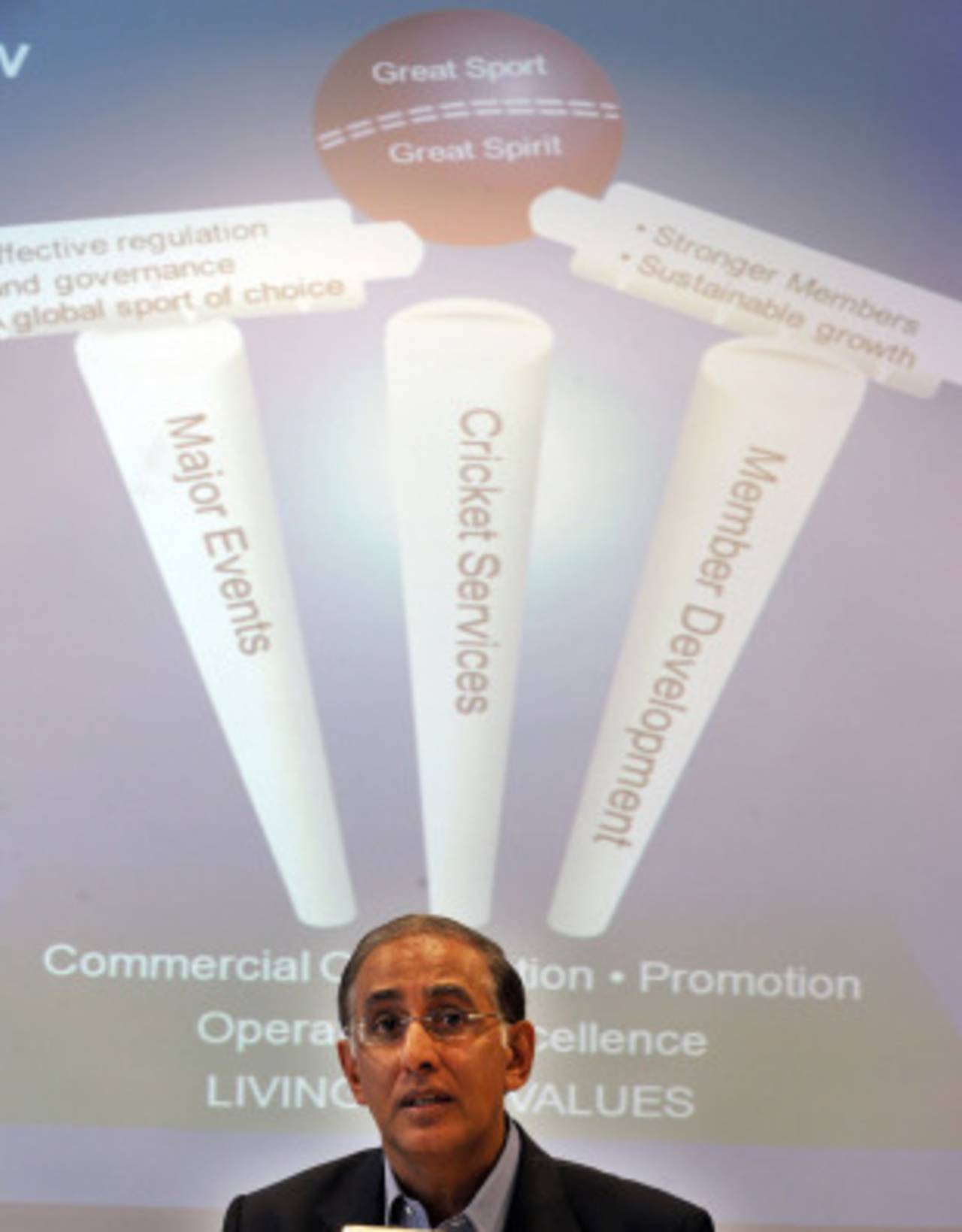A bold new step for the ICC
Never before has the ICC punished or acquitted a player for corruption, leaving it to the member countries' boards to sort the issue
Osman Samiuddin in Doha
Jan 5, 2011, 8:10 AM

The credibility for the ICC and ACSU and their capacity to prevent corruption within the game is riding on the hearing • AFP
One day over the next seven, a precedent will be set. Cricket's governing body, on evidence collected by its anti-corruption unit and provided initially by a tabloid, will decide whether or not three players are guilty of corruption and if so, then how to punish them suitably. Any judgment will be a first; all players who have been punished in the past for corruption have had it imposed by their own boards. The ICC has never punished or acquitted a player for corruption.
Indeed that was the central problem in the first cases of match-fixing. The ICC was not equipped to handle such affairs and keenly bounced responsibility back to the concerned countries. So we had the disparities and contradictions of a Fakhruddin, a Qayyum, a King, a Chandrachud or the CBI; some players were innocent and guilty, some were banned, others should have been, some were only fined, some weren't banned long enough. It was a mess, but no longer. Now the ICC controls these matters. There is one code for all, one central inquiry and one standard of punishment for everyone. It is progress.
For Salman Butt, Mohammad Amir and Mohammad Asif, the situation isn't bright. Much has happened since that video first emerged and in Pakistan at least, its impact seems to have dimmed in a typical haze of conspiratorial self-denial and pedantic, misinformed legalities. Neither is this a ploy hatched by India - for one, that would be to credit the BCCI with more intelligence and cohesion than is warranted - nor does the Scotland Yard case play a role here. That is a separate investigation under a separate jurisdiction with separate consequences; ditto the provisional suspensions hearing in Dubai.
Objection to the presence of Michael Beloff QC as head of this tribunal is desperation. The tribunal is independent and it is peopled by duly competent professionals. Furthermore, they have been chosen and agreed upon by ICC members, of which Pakistan is one - only just admittedly.
To the rest of the world though, the shock of that video remains. What everyone saw was one man claiming to have paid three players to bowl deliberate no-balls in a Test. Those no-balls occurred at the precise moment he said they would. The video was not recorded after the event. That bit of evidence alone is as nakedly damning as it sounds. Neither is it the only bit of evidence.
Yet the trio has been bullish throughout, and much to this writer's surprise at least, very public about it all. It is their right to protest their innocence of course, any way they wish to do so. They've appeared on news and current affairs shows, which makes a roundabout sense. They've also turned up on TV-lite; on morning breakfast shows with pretty hosts chit-chatting about newly-wedded bliss, for example; on Eid specials chatting about the joys of such festive occasions; on primetime chat shows detailing their rags-to-riches rise.
It's admirable in some instances to move on while life is in turmoil but has anyone - TV channels and the players - really grasped the gravity of the situation? To this eye, the whole blitz, at once pretending nothing is wrong and otherwise treating it as a minor blip in a surely prosperous career, has been too surreal. The other day one channel brought together a numerologist, palmist and tarot card reader to tell us what will happen to them in Doha. The surprise was that none of the three appeared on the show.
The legal defence has often been as strange as this public effort. Butt has gone through lawyers as if they were Pakistani opening partners and some haven't understood precisely what the case entails. Vital evidence, SMSs, confidential reports and statements and even video footage, has leaked out to the local media steadily. One bit of footage was broadcast by a leading channel and almost immediately taken off air because of copyright issues. Fed up, the ICC asked lawyers to send evidence back. Unsurprisingly at one point there were serious concerns within the ICC over the legal representation compromising the hearing itself. It has been messy.
Now there is utmost heat. Haroon Lorgat's recent comments, that he would be disappointed if the players weren't found guilty, have irked Pakistanis. But Lorgat, as the ICC, is the prosecuting party in this case. They are the ones who brought the charges and so the question of bias doesn't even arise. Of course he will want the case to be successful. To openly say it perhaps betrays just how important a test case this is for the ICC and the ACSU.
Much is riding on it, credibility for the ICC and ACSU and their capacity to prevent corruption within the game and for the players, their entire careers. Right and wrong, crime and punishment, justice; this will be cricket's lot over the next week.
Osman Samiuddin is Pakistan editor of Cricinfo